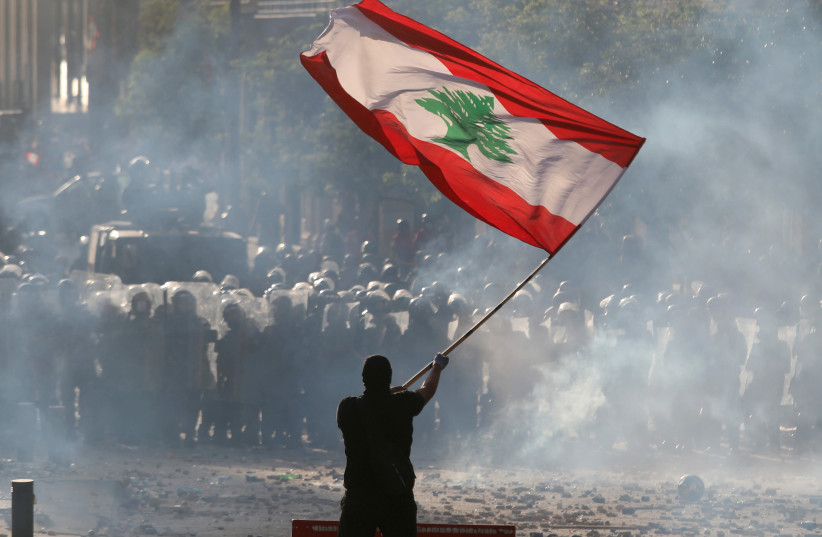Iran supports Hezbollah and any protests in Lebanon are sure to challenge the religious terrorist group’s stranglehold on the country. For Turkey the game plan is more complex.
SETH J. FRANTZMAN

Two of the most powerful countries in the Middle East that will seek to influence Lebanon in the wake of the explosion that gutted the port of Beirut and has killed and injured numerous people, are concerned about protests upsetting their plans. Media in Iran and Turkey were noticeably silent on the massive protests in Beirut on Saturday. Sunday morning found few if any reports in the pro-government media of booth states.
How to explain the lack of coverage? While media linked to the Gulf states, such as Saudi Arabia or United Arab Emirates were covering the protests on the ground, with some appearing to even enthusiastically embrace them, these big countries were more reticent and skeptical. In Iran’s case the answer is clear: Iran supports Hezbollah and any protests in Lebanon are sure to challenge the religious terrorist group’s stranglehold on the country. For Turkey the game plan is more complex.
Turkey’s vice-president Fuat Oktay and Foreign Minister Mevlut Cavusoglu visited Beirut on Saturday. Surrounded by a huge entourage of men, apparently bodyguards, the Turkish delegation seemed to meet only with male Lebanese and then promised to help rebuild the port that was destroyed. In a bizarre initiative Turkey also said it would grant citizenship to ethnic Turks in Lebanon, a play for ethno-populism that seemed out of character with the non-sectarian support other countries were giving. In this statement it was not clear if Turkey’s main goal in Lebanon is to create a foothold as it has in Iraq, Syria, Qatar, Somalia and Libya in recent years.
Pro-government media in Ankara seemed to ignore the protests or emphasize how “violent,” they were, according to TRT. For instance TRT claimed a police officer was killed, even though this report was not confirmed and asserted that protesters had set up symbolic nooses “to hang politicians for corruption.” Indeed, protesters had done that. But they had targeted Hezbollah’s leader and specific leaders. Ankara seems worried that the protests in Lebanon will remind a Turkish public that increasingly faces bans on dissent at home of the days when they could protest. For instance, in recent months Turkish politicians have been handed long jail terms for merely critiquing the government on social media.
Iranian media ignored the protesters or pushed conspiracy theories. For instance Fars News didn’t mention the protests on the homepage on Sunday but did have an article asserting the French were responsible due to colonial rule. Tasnim claimed “suspicious elements” had infiltrated the protests and attacked government ministries in Lebanon. This followed reports in other pro-Hezbollah media about how the protesters have a secret plan to destroy files linked to corruption. The protesters are protesting corruption, so why would they destroy the files? The goal of these reports is that Iranian-backed Hezbollah can then claim the protesters tarnished files at various ministries and “sabotaged” the investigation.
It’s clear that Ankara and Tehran, as well as other states are preparing their narratives. They must tread carefully because much is in flux in Beirut and their media need to weave narratives that will fit the governments’ long-term goals. These narratives are already being formed, quietly and on social media and online.
Content retrieved from: https://www.jpost.com/middle-east/turkey-and-iran-concerned-about-lebanese-protests-637978.